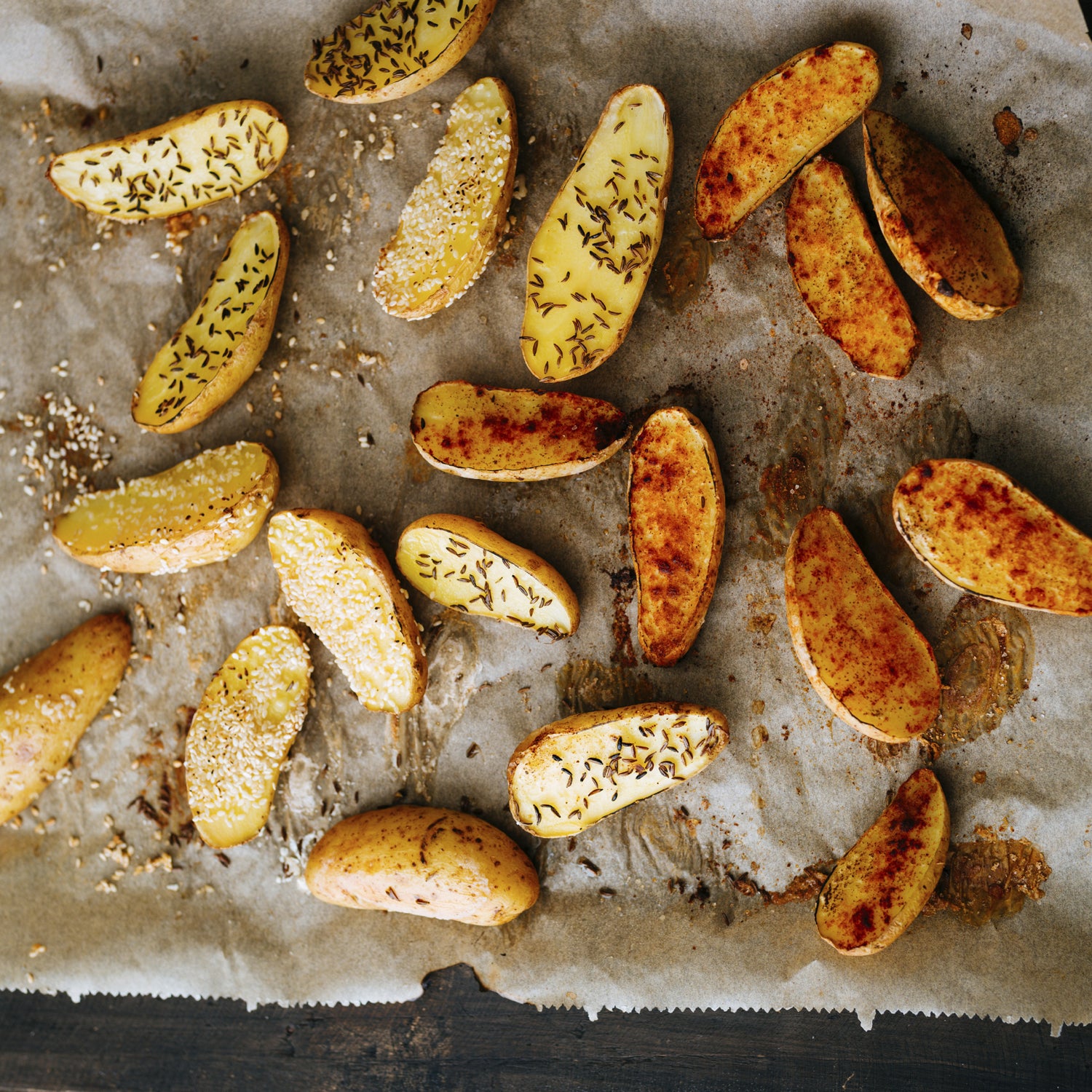A in the Quarterly Journal of Biology argues that, not only were carbohydrates part of our paleolithic diet, they were an essential part, fueling our fast- growing brains. The study went viral, picked up in the and many other outlets, prompting frowning emoji from paleo devotees everywhere. That’s because “paleo” has become synonymous with “meat,” and “carb” remains a much-maligned four-letter word.
The authors of the study based their conclusions on a few key factors: (1) the development, sometime “less than 1 million years ago,” of a digestive enzyme called amylase, which helps breakdown starchy foods; (2) the proliferation of cooking, which the authors pin to around 800,000 to 500,000 years ago (some anthropologists suggest cooking began as far back as 1.8 million years); and (3) the subsequent increase in brain size, which is thought to be concurrent with the evolution of cooking. These insights suggest that humans consumed carbohydrates, along with meat, because cooking suddenly made so much more food available, and, presumably, tasty.
That carbs were part of our ancestral diet isn’t exactly a new discovery. Loren Cordain, author of , the book that launched a diet craze and inadvertently created millions of bacon-tarians, suggested that carbs made up anywhere from 30 to 70 percent of our paleolithic staples. Back in those days, carb intake often depended on geography, season, and availability. One of the specific carb sources identified in the QJB study is ancient tubers, distant cousins to our modern-day sweet potatoes and other spuds, which, when cooked, provided a rich source of untapped nutrients (raw foodests, take note). But this is not a reason to start super-sizing your fries again.
The optimum human diet remains a hotly debated topic, but one thing has become clear: it varies by individual. “Some people can really benefit from a carb-restricted, ketogenic (fat-burning) diet,” says Robb Wolf, author of . “But others can do fine on carbohydrate. The key is to eat whole, unprocessed foods.”
Joe Friel, author of , is adamant that carbohydrate is a necessary part of any high-performance diet, since they are an important fuel for high-intensity activities.
The QJB study landed like some kind of a revelation, but it wasn’t. Despite what your CrossFit friends may tell you, carbs aren’t the enemy; they’ve been an important part of our diet for a very long time. It’s our abuse of modern carbohydrates—primarily refined grains and sugars—that has become an issue of epidemic proportion, explains Wolf. Meat-laden diets are one way to combat this. But so is a balance diet, supported by plenty of activity and a better understanding of our nutritional needs.


